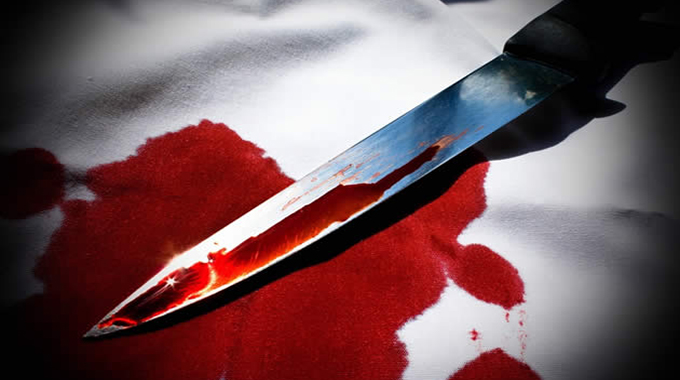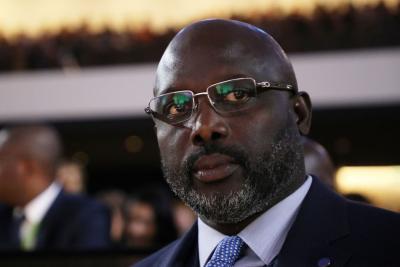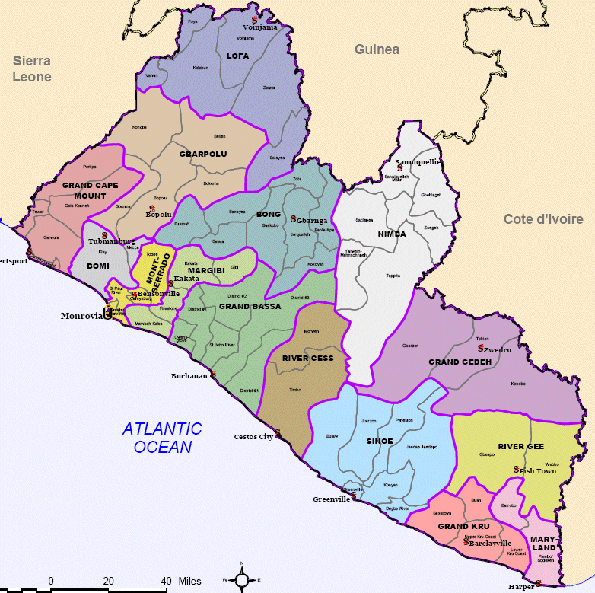Earlier this month I already reported on the acquittal of Gibril Massaquoi, who stood trial in Finland, accused of war crimes and human rights violations during Liberia’s civil war. See my post entitled Liberia war crimes: Sierra Leone rebel commander acquitted of rape, ritual murder and the recruitment of child soldiers.
The article below refers to statements made by Joseph Marzah, a former rebel-general and a former key ally of Gibril Massaquoi. Joseph Marzah, commonly known as “Zizar Marzah” said that the Finnish District Court got it wrong when it acquitted Massaquoi of charges of war crimes and crimes against humanity allegedly committed in Liberia.
The reason for including Marzah’s observations and denial is to demonstrate the complexity of war crimes courts and the handling of accusations against suspected perpetrators of war crimes including ritualistic murders. The fact that during Liberia’s civil war(s) ritualistic activities including ritual murders have been committed is not disputed. For shortness sake I may refer here to the Final Report of Liberia’s Truth and Reconciliation Commission released in 2009, which report provides ample examples of these horrific crimes.
(To be continued, see my May 24 posting)
(webmaster FVDK)
Liberia: Key Massaquoi Ally Says Finnish Court Got it Wrong

Published: May 17, 2022
By: FrontPage Africa – FPA Exclusive by Anthony Stephens with New Narratives
MONROVIA – A key former ally of Gibril Massaquoi, the Revolutionary United Front commander, says a Finnish District Court got it wrong when it acquitted Massaquoi of charges of war crimes and crimes against humanity allegedly committed in Liberia.
Joseph Marzah, commonly known as “Zizar Marzah”, was a fierce general with then-president Charles Taylor’s forces in the period Finnish prosecutors alleged Massaquoi conducted his crimes during a trial that lasted more than a year. Marzah was a key figure, accused repeatedly by witnesses of atrocities allegedly committed with Massaquoi in Lofa County. In an exclusive interview with New Narratives last week at his residence along the Monrovia-Robertsfield highway, Marzah insisted Massaquoi was among the RUF troops Taylor sent to Liberia to help defend his government against the uprising by the Liberians United for Reconciliation and Democracy (LURD) rebel group that would eventually drive Taylor to resign in August 2003.
In an 850-page ruling, the Finnish judges found there was “reasonable doubt” as to whether Massaquoi, who denied the charges, was in Liberia when the alleged crimes took place. They acquitted Massaquoi of all charges. Prosecutors plan to appeal.
“Gibril Massaquoi fully took part in war here,” Marzah said listing the Lofa towns he was with Massaquoi. “He passed through the towns of Zorzor, Fessibu and Vasala.”
Marzah said Massaquoi was decorated with the rank of Captain at Taylor’s direction because of his strong performance on the frontlines of battle.
“Gibril Massquoi was assigned to me. When we sent him for our logistics like arms and ammunition, he went for them and brought them to us,” said Marzah. “Where there was intense fighting, he joined us to fight. In 2001 and 2002, he was with us, and we battled LURD in Chicken Soup Factory, Double Bridge, ELWA and Shefflin.”
Marzah’s claims back the allegations put forward by Finnish prosecutors that Massaquoi had been active in Liberia’s second civil war between 1999 and 2003. The indictment alleged Massaquoi committed rape, torture, ritual murder, torture and recruitment of child soldiers in villages in Lofa County in the years 2000-2002.
In the most shocking crime heard during trial, Liberian witnesses testified that dozens of women and children were forced into a kitchen building that was set alight, burning them to death.
Marzah, no doubt mindful of his own risk of prosecution, did not concede that he and Massaquoi committed any crimes. But he insisted Massaquoi was with him, as many had witnesses testified, in Lofa during the 2001-2002 period.
“If Gibril Massaquoi denies that he was with me, NPFL, I would like for us to sit face-to-face (in court) so that I can question him like the scenario between Taylor and I. I fear nothing.”
However, Marzah cast doubt on the most contentious prosecution accusation: that Massaquoi escaped a UN-backed safehouse in Freetown between June and August 2003 to fight for Taylor in the Waterside area of Monrovia.
“In 2003, I only heard that he came (from Sierra Leone) and went back. I was assigned to Grand Cape Mount County at the time.”
Marzah claimed Massaquoi escaped Liberia in 2002 after he stole from Taylor.
“After we had made two trips (with two jars of diamonds) along with the logistics to Taylor, he left us because he ran away with the third jar of diamonds,” said Marzah. “When the order came that if we saw Gibril Massaquoi, we should execute him because of the diamonds he stole and ran away with, I didn’t see him then.”
Massaquoi’s Lawyer, Kaarle Gummerus denied commenting on Marzah’s allegations, telling this reporter in a WhatsApp message “the defense does not feel the need to comment on Mr. Marzah’s allegations”.
Marzah said he was approached by representatives of the Finnish investigators in the case and was willing to testify. He did not say why he was not called to give evidence.
In a WhatsApp message Tom Laitienen, the Chief Prosecutor for the case said “We considered Marzah as a witness, but practical issues hindered us from hearing him. We will most likely consider him again if he agrees to testify.”
When pressed as to what the practical issues may have been Laitinen said “unfortunately, I cannot discuss them in detail, but they include his possible role in the suspected crimes and his role as a witness to the Special Court.”
It is not clear that Marzah’s testimony would have made a difference in the verdict. The court found many of the witnesses, including those who claimed to be ex-soldiers of Charles Taylor’s army, were unreliable. It said they had provided contradictory and inconsistent statements between the investigation and the trial. The court found it likely they had been influenced to a degree.
“The witnesses’ accounts have been very similar in some respects, and in some respects they have changed in court in the same way compared to the pre-trial phase,” said the ruling. “This has been the case in particular with regard to the time of the events. This suggests a kind of collective processing of the facts on the basis of which the witnesses formed their perceptions, or at least external influences. In some respects it has been difficult to distinguish between what was based on the witness’s own observations and what was otherwise based on information obtained by the witness. These factors undermine the reliability and relevance of individual reports as evidence.”
While the court was persuaded that Massaquoi, whose testimony played a key role in the conviction of Taylor and a dozen top rebel leaders in the Special Court for Sierra Leone, held very high rank in the RUF, it was not convinced he committed war crimes in Liberia.
The Court’s ruling was almost entirely about inconsistencies in the witnesses’ testimonies. It cited as examples, where some of the witnesses were not exact about key dates and names of individuals who may have carried out crimes. In one instance, witnesses accused Massaquoi of being responsible for mass killings in Kamatahun, Lofa County. In another instance, they attributed the crimes to Marzah.
“It has emerged from several witness accounts that “Zig Zag” Marzah or “Stanley” [another Taylor commander] had been responsible for the burning of people in the Lofa area, especially in Kamatahun.”
Marzah Denies Allegations
Marzah, now 64 and living in a remote part of his native Nimba County, denies he committed any atrocities.
He claimed to have provided safety for members of the Gbandi tribe, who were allegedly burnt alive in buildings, because, he claimed, his wife was a Gbandi woman. Marzah denied he was in the town when the alleged killings took place.
“It was Benjamin Yeaten [another top Taylor commander known as “Chief 50”] who sent Brigadier General Gourtor, [known as “Idi Amin” after the late Ugandan President], “Butu Lazen” and the late “Busy Boy”. They went to Kamatahun Hassala to carry out those executions,” Marzah alleged.
Yeaten, whose whereabouts are unknown, was mentioned many times by witnesses. They told the court Yeaten was very close to Taylor and coordinated the operations of government and RUF forces. Taylor, who is currently serving a 50-year sentence in a British jail for aiding and abetting Sierra Leone’s civil war, funded the operations of the RUF by giving them arms and ammunitions in exchange for diamonds according to the Special Court.
Marzah said there were times that both RUF and Taylor’s forces backed up each other, depending on the scale of the attacks they experienced from opponents.
Special Court former Trial Attorney Backs Marzah’s Comments
Marzah’s comments were backed up by Chris Santora, a former Trial Attorney for the UN-backed Special Court for Sierra Leone and on the Taylor trial.
“Whoever really understands well the history of the links between Charles Taylor and the RUF trial knows that top RUF commanders were often in Liberia interacting at many levels with Benjamin Yeaten and Charles Taylor throughout 2000 and 2001,” said Santora.
“The reasons were many not least of which was Taylor’s use of the RUF in his own war in Liberia but also this was when the diamond pipeline was at its peak as the RUF had firm control of the diamond areas of Kono. Many of these RUF commanders including Massaquoi were back and forth frequently through 2001 as they were running diamonds. (sometimes their own side deals others through Taylor) The finding of the Finish District Court which says that Gibril Massaquoi was not anymore traveling at all to Liberia after June 2001 does not accord with the overwhelming evidence I myself have seen. It doesn’t make sense in the larger context of events at that time period,” said Santora.
Marzah Supports a War Crimes Court for Liberia
Once considered a Taylor trusted general, Marzah, dismissed allegations that he betrayed his former boss. But he said he did oppose Taylor by the end. He was “killing our people slowly,” Marzah said. He blamed Taylor for the murders of a long list of individuals, including Enoch Dogolea, Taylor’s first Vice President and Samuel Dokie, a leading opposition politician with the Unity Party at the time.
Marzah is ranked 66th on a list of 100 most notorious perpetrators recommended for prosecution for gross human rights violations by Liberia’s Truth and Reconciliation Commission. But in the interview he expressed support for a war crimes court and said he was willing to appear.
“I prefer it to be in Liberia,” he said. “There are some wicked people. Some did nothing, some went in the government because they have connections. Some carried out destruction. So, it’s better for the war crimes court to come to sifter all of us. I am willing for it to come. That’s the time we all will explain everything in detail.”
Prosecutors will file a motion to appeal the District Court’s acquittal in coming weeks.
This story was produced in collaboration with New Narratives as part of its West Africa Justice Reporting Project.
Source: Liberia: Key Massaquoi Ally Says Finnish Court Got it Wrong





